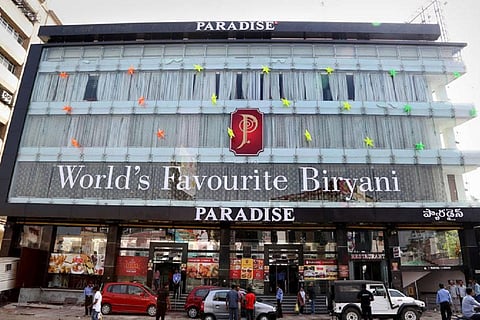

Hyderabad’s biryani brand Paradise Food Court is looking to expand 10 times in the next few years and have a total of 500 stores. The company said it currently has 50 stores in 13 cities, up from 42 at the start of the fiscal year. Since October 2021, the chain has opened eight restaurants in Warangal, Eluru, Vizianagaram, Rajamahendravaram, Kurnool, and Hyderabad. By the end of 2022, the company said it is looking to add 50 restaurants.
Private equity firm Samara Capital, which held 49% stake in the company already, is investing in the company both through a primary infusion as well as secondary purchase of shares of the founders. The Economic Times reported that Samara has now ploughed in Rs 560 crore for a large chunk of the remaining 51%, and that the company’s former promoters will own 3-4%.
Samara Capital said that Paradise is the largest biryani-focussed player in the country, and the category has seen significant interest. Samara had initially invested Rs 70 crore in Paradise in 2014. Paradise was started in 1953 as a canteen and cafe in a cinema hall, and was restructured between 1978 and 1996.
In terms of its expansion plans, the company said it is initially looking at expanding the first 100 stores in Andhra Pradesh and Telangana, and the next phase across south India with another 100 — taking the total to 200-225 stores in the south. The company is also looking at 100 outlets in eastern India including Kolkata, and 200 in north India and west India.
After two years, CEO Gautam Gupta told the press that the company will also be looking at international expansion, adding that North America, Europe, the Middle East and parts of southeast Asia are all areas with a strong Indian diaspora
These new stores that the company will not be traditional full-service dine-in restaurants but quick service restaurants which are likely to be smaller and faster service stores. In terms of revenue, the company said it is looking at Rs 2,000 crore by 2027. For its expansion, the company will not be going the franchisee route but will have all company-owned stores. This, Gupta said, will be funded 25% externally and 75% internally. It said in FY21, revenues came in at Rs 253 crore.
Paradise Food Court Founder and Chairman Ali Hemati, said in a statement the company gets a majority of its sales from off-premise transactions, including through its own app, aggregators and takeaway.
“A series of interventions on the back end, including standardisation, automation and supply chain have made the brand ready for rapid scale-up. The funding will help us build upon these strengths and lead to an accelerated growth in the footprint over the next few years, where we plan to open 500+ omnichannel restaurants,” Gautam Gupta said.
“The omnichannel restaurants opened over the last few years have shown very promising customer inputs and financial outcomes, despite the COVID-19 impacted period, and gives the brand the confidence of rapid and profitable growth from here-on,” he added.
According to statistics put out by food aggregators, biryani consistently ranks among the most ordered dishes. In a report in December 2018 by FICCI and PWC, it termed biryani as an unlikely champion of India’s fast food scene. It said that the organised biryani delivery industry was around Rs 2,500 crore. Presently, brands such as Paradise, Behrouz Biryani, Biryani by Kilo, Biryani Experiment and Dindigul Thalappakatti are competing in the space. Other biryani brands have also raised funds in the recent past.
When asked about competition, Gautam Gupta told TNM that only 10% of the biryani market is organised, and that organised players are at the forefront of converting the unorganised market. “This is an opportunity to make that 10% to 30-40%,” he said.